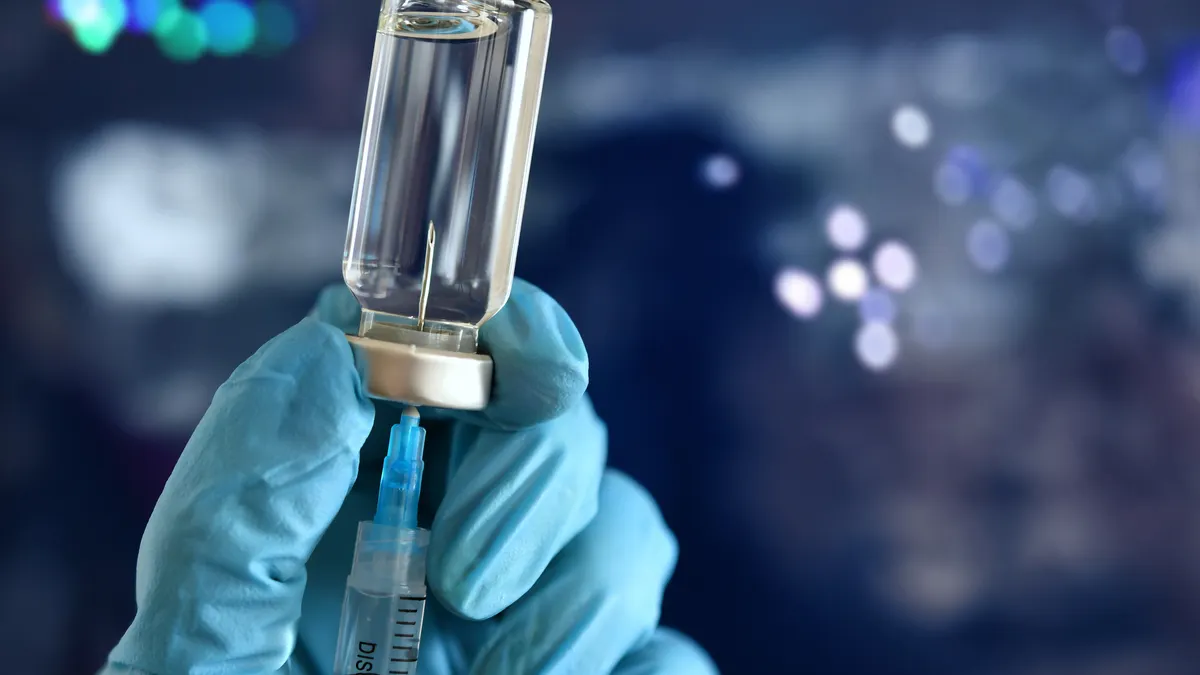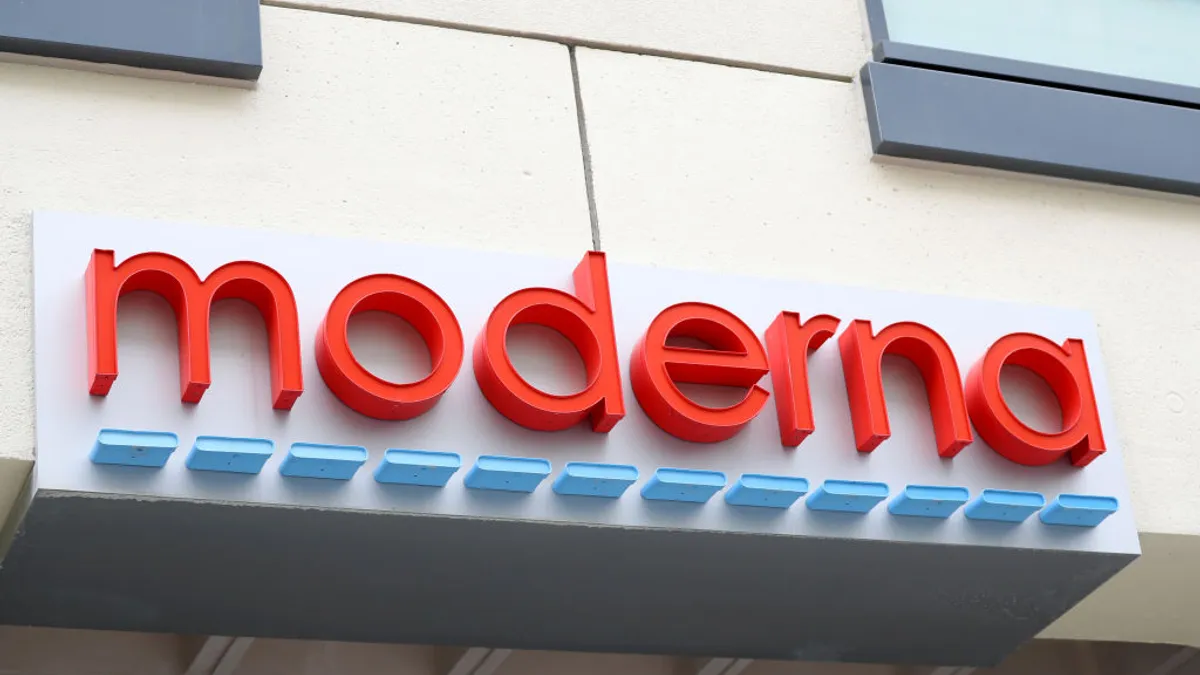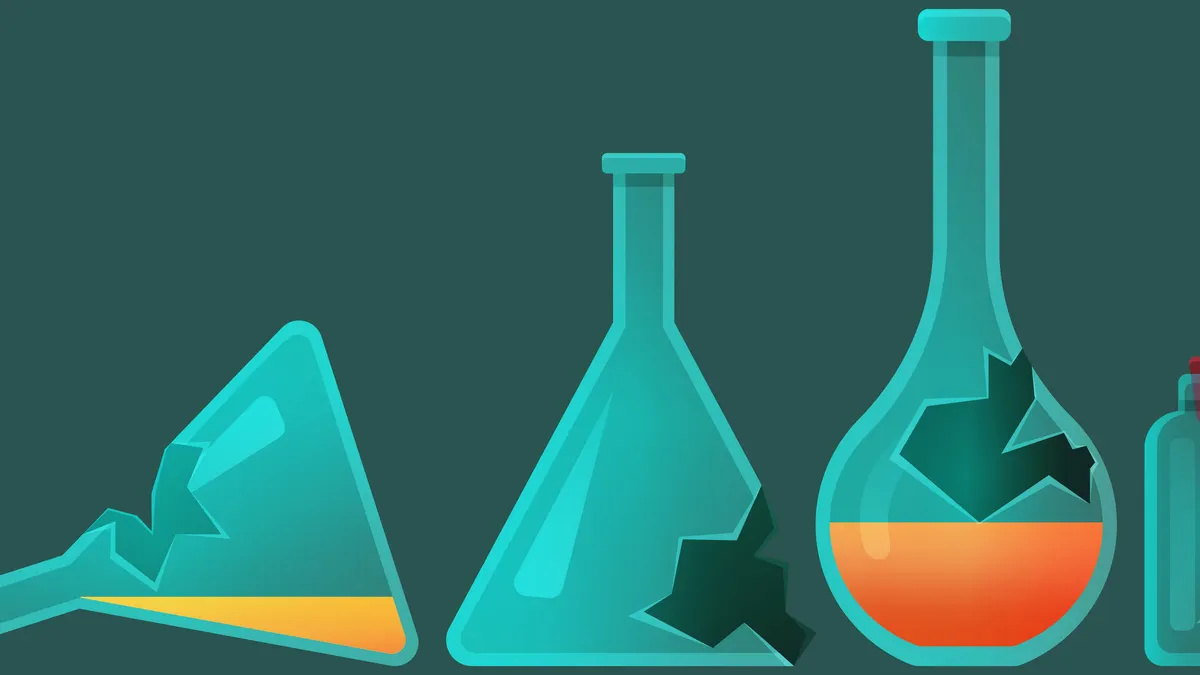When HHS Secretary Robert F. Kennedy Jr. revealed a plan to require placebo testing for all new vaccine approvals, the agency added few details about the policy shift.
The announcement raised alarm bells — and questions — among experts, especially because new vaccines are already tested against placebos. So what would be considered a “new” vaccine under this policy?
HHS agencies have dropped hints as to how they could answer this question.
Just days before announcing the placebo requirement, the FDA delayed full approval for Novavax’s COVID-19 vaccine, asking the company to provide a post-market commitment for additional clinical data. FDA Commissioner Dr. Marty Makary wrote on X, “This is a new product that Novavax is trying to introduce to the market with a study of a different product from 2021. New products require new clinical studies.”
Although Novavax ultimately won the regulatory go-ahead this week — for a limited population at least — classifying its vaccine as “new” because it targets a different strain of an endemic virus is a historical shift for the FDA.
More instructions are on their way from health authorities after Makary said the agency will release “a massive framework” with guidelines for COVID vaccine manufacturers. The Trump administration also recently announced the launch of a $500 million universal flu vaccine project dubbed Generation Gold Standard, aiming to develop a shot that would not need to be updated annually. Although the project’s platform could be adapted to create vaccines for COVID, RSV and other diseases, outside experts are “puzzled” by the project’s planned use of decades-old, “traditional” vaccine technology.
In the meantime, the industry is waiting for more guidance about the new placebo testing requirement.
What may change
Kennedy stated that many vaccines haven’t been tested against a placebo, but that isn’t completely true.
While some new vaccines are tested against existing shots for the same disease, drug developers use placebos when testing a vaccine for a new disease indication that doesn’t have one.
“Placebo controls become standard in most phase 3 vaccine trials,” Emma Ogburn, vice president of clinical operations for Lindus Health, said via email.
In early phase trials, “participants receive the vaccine in a simpler, open-label design to determine safety and the appropriate dosage,” she said.
Placebos are introduced later.
“The gold standard for phase 3 is a double-blind, randomized, placebo-controlled trial — meaning neither the participants nor the study team know who received the vaccine or the placebo,” Ogburn said. “These trials assess vaccine efficacy, safety and protection rates.”
In fact, testing new vaccines against a placebo could be considered unethical.
“Placebo use is typically considered ethical when no effective vaccine currently exists,” Ogburn said. “If one does, it’s more appropriate to compare the new vaccine against it.”
Seema Shah, professor of pediatrics at Northwestern University Feinberg School of Medicine, said in a statement that requiring placebo-controlled trials is “ethically problematic and will slow testing down for no good reason.”
“If we have vaccines or treatments that work, it’s wrong to give some research participants nothing,” she said.
It’s also unclear if the FDA will consider annually updated vaccines, like the flu and COVID, as “new” products.
“I don’t think because there’s a strain change that this is a new product,” Dr. Jesse Goodman of Georgetown University, a former FDA chief scientist, told the Associated Press of the Novavax jab. Otherwise, “you’d always be doing clinical trials and you’d never have a vaccine that was up to date.”
The administration may ultimately disagree. An HHS spokesperson told ABC News that Makary “has indicated that significant updates to existing vaccines — such as those addressing seasonal strain changes or antigenic drift — may be considered 'new products' requiring additional clinical evaluation.”
Potential challenges for industry
Requiring placebo-controlled trials for every new vaccine would create more than ethical concerns.
“Using placebos in vaccine trials can significantly increase costs and complexity,” Ogburn said.
For instance, placebo-controlled trials would require larger sample sizes “to ensure statistical power” and more sophisticated statistical analysis “to accurately interpret results.” The shift would also require “randomization and blinding, which can lead to delays,” she said.
Other factors also make placebo trials more resource heavy, such as the need for ongoing monitoring of both the trial’s placebo and vaccine arms; ensuring that the placebo and vaccine doses have identical packaging, vials and labeling; and compensating patients who participate in a healthy volunteer trial, Ogburn said.
But the arguments about added costs for pharma may fall on deaf ears at the FDA.
“Under this administration, we are prioritizing the Gold Standard of Science — not what saves pharma companies ‘tens of millions of dollars,’” Makary wrote on X, referencing the Novavax delay.
Now, the industry must wait for official details and guidance that could upend decades of scientific and ethical norms. In the meantime, though, a few upcoming events could provide clues into the FDA’s thinking, including a May 22 advisory committee meeting to discuss and recommend the 2025-2026 COVID vaccine formula, as well as a May 31 PDUFA date for Moderna’s next-gen COVID jab.


















